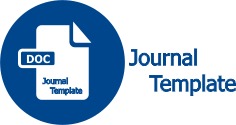International Free Trade: Can Indonesia Survive It?
DOI:
https://doi.org/10.30651/blc.v4i01.711Abstrak
     There have been arguments that, for Indonesian economic development, competitive advantage will soon replace comparative advantage. It is also argued that one country should not be satisfied with its comparative advantage. As a cpuntry who has enjoyed comparative advantage for about three decades, Indonesia must not be a country that exports labour-intensive commodities forever. It must shift to being a country that exports capital-intensive and high skill intensive commodities. It must also find which commodities are going to be competitive in the world market. A skepticism stems from the fact that the developing countries usually specialize in agricultural products, while the developed countries specialize in manufacturing products. It is also argued that with the current open international free trade, the products of the developing countries will not be able to compete with those from the developed countries.
Â
Key phrases: free-trade, labor-force, traditional industries
Referensi
Ananta, Aris. “Economic Integration and Free labour Area: An Indonesia Perspectiveâ€. 2007. Retreived from: http:www.unesco.org/most/apmrlabo2.doc.
Ann. “The Role of Trade Finance in International Trade†(Workshop Paper). Jakarta: LP3E-Kadin Indonesia. BEI Bogor, 2003.
Crary, David. “More Illigal Immigrants Hired as Housekeepers, Nanniesâ€. USA: The Associated Press, 2007. Retrieved from: http://www.usatoday.com/news/nation/2007-11-02-immigrants_N.htm
Gita, Redma. “2006 TNC report and 2007 Forecastâ€. Jakarta: CV Gaindo Pratama, 2007. Retrieved from: http://www.indotextiles.com/index.php?option=com
Harris, Jonathan M. “Environmental Economicsâ€. Washington DC: Environmental Information Coalition, National Council for Science and the Environment, 2007. Retrieved from: http://www.eoearth.org/article/Trade_and_the_environment
Haswidi, Andi. “Indonesia Likely to be the Loser in Japan Agreement†(News Article, in The Jakarta Post 18 August 2007). Jakarta: The Jakarta Post, 2007.
Suranovic, Steven M. “The Heckscher-Ohlin (Factor Proportions) Model Overview: International Trade Theory and Policyâ€. 2006. Retrieved from: http://internationalecon.com/Trade/Tch60/T60-0.php
Wikipedia. “Economy Indonesiaâ€. USA: Wikimedia Foundation, Inc., 2008. Retrieved from: http://en.wikipedia.org/wiki/Economy_of_Indonesia
_________ . “Indonesiaâ€. USA: Wikimedia Foundation, Inc., 2008. Retrieved from: http://en.wikipedia.org/wiki/Indonesia
-----














